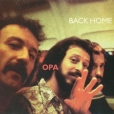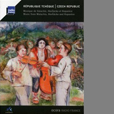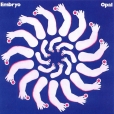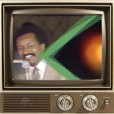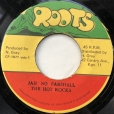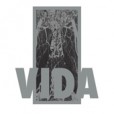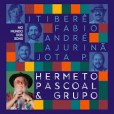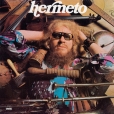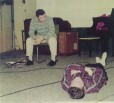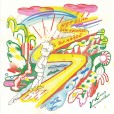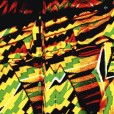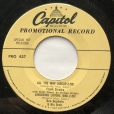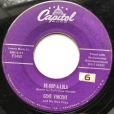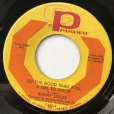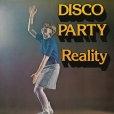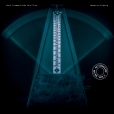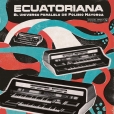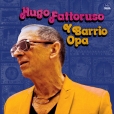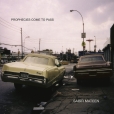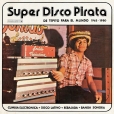Your basket is empty

Lullabies, carnival, work, wedding, shepherds’, bandits’ — music for singing, flutes, bagpipes, guimbards, fiddles and cymbalums.
Guaranteed to put a beam on your bean and a glide in your stride, the DVD here compiles moments from a local 1982 TV show, broadcast live from a club called The CopHerBox. It’s pleasurable enough just watching people get down so naturally, in a real-life club… but you also get ventriloquists, contortionists, body-builders, impersonators, ‘the full-figured ladies fashion show’, comedy sketches, android group-dancing to techno, rubber chickens… and bands like Universal Togetherness miming to their latest records. There’s also a mini-documentary, complete with Phil Cohran section; and twenty-three full musical performances. (Finally the Dingwalls posse gets a glimpse of Luba Raushiek in action.)
The CD and vinyls are culled from a trove of self-released 45s and small-time twelves; a die-cut cathode-ray jacket and six in-package stills are your tickets and souvenirs.
Great fun.
‘Eighteen dedications, each hybrid and different, but driven by an utterly personal approach to bebop, Brazilian jazz, Africa and Brazilian roots; thronged with his signature battery of whistles, screams, scales, keyboard, kettles, spoons, squeeze toys, children’s voices, prepared piano and geese calls; with the band adding native instruments like pandeiro, surdo, caixa, apitos, bonecos and agogos, besides saxophones, flute, electric piano, electric bass and so on. Musicians and genres such as Terry Riley, Frank Zappa and Weather Report, Javanese gamelan and Indonesian kulintang come to mind, but there is no real overlap: Pascoal has his own special brew.’
His first recording with his band in fifteen years. “My music is not commercial; it’s not like selling bananas or soap. I’m not in a hurry to record.”
Linus plays the hommel, a forerunner of the Appalachian dulcimer, flutes and rattles; and sings.
‘The hommel has existed since the middle ages, but the earliest example still intact is from 1608. Once a staple in most households in the Low Countries, it is a true folk instrument, of the people, mainly played in the past by women who used their kitchen tables as resonating surfaces to amplify & accompany traditional religious & secular tunes. Nowadays it is seen rarely outside of museums in Brussels & other places you most likely have never heard of. It is not spectacular, its simplest version is just a long thin box with strings on top. Some of the strings are melody strings, which have frets placed underneath them, the others are drone strings that have no frets. Traditionally it was strummed with a goose feather & notes were made by sliding a hard stick with a handle, from fret to fret on the melody strings leaving the drone strings ringing openly. The constant hum of the drones is where the name of the instrument comes from: in Flemish, a bumblebee is a hommel.’
Lovely stuff from the wonderful Okraina.
Not disco at all — rather a fully rounded excursion into mid-70s dancefloor funk and jazz-funk, by an orchestra of crack NYC musicians originally known as the Smokin’ Shades Of Black.
Like previous Jazzman revives by Sounds of the City Experience and Ricardo Marrero, this reissue saves from obscurity some wonderful music wilfully squandered at the time in the service of tax scamming. The booklet tells the full story.
Bangers drawn from the bootleg compilation LPs — ‘pirata’ — which were all the rage in 1980s Mexico City, The hottest, rarest hits from Peru, Ecuador, Colombia, and beyond — edited, tweaked, EQ-manipulated and pitched-down, to suit the sonideros running the city’s mobile soundsystems.
